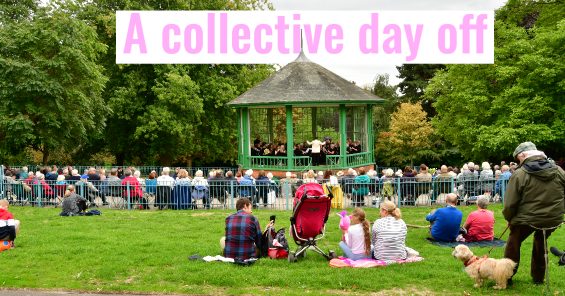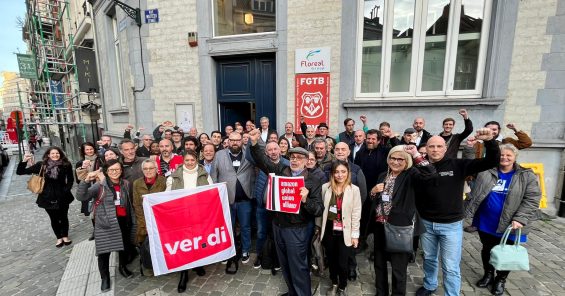European Day for a Work-Free Sunday
Synchronised quality resting time for an improved mental health of workers.

On the occasion of the 2023 European Day for a Work-free Sunday on March 3, the European Sunday Alliance recalls the urgent need for synchronised quality and social resting time for workers, in order to enable them to preserve their mental health.
Every worker has the right to working conditions which respect his or her health, safety and dignity. Every worker has the right to limitation of maximum working hours, to daily and weekly rest periods and to an annual period of paid leave.
Article 31 of the Charter of Fundamental Rights of the EU
Weekly rest periods not only encompass the quantity of time, i.e. a work-free day, but also the quality of this rest. A work-free day must allow to combine both personal rest and social bonding. Individuals are indeed social beings, part of a community, and their interpersonal relationships play a key role in their work-life balance, wellbeing, and recovery from work. Where resting time can be organised as synchronised resting time, this allows individual to spend time with their family members, friends or peers, or collective social communities, which can include volunteering, worship, leisure and sport. A common day of rest during the week is a prerequisite for a healthy work-life balance and a recovery from daily stress.
Furthermore, the phenomenon of loneliness is a growing and unpreceded reality in Europe, impacting negatively the work-life balance and wellbeing of workers. Loneliness and social exclusion have also consequences at the collective level. As a recent science-for-policy report published by the European Commission’s Joint Research Center (JRC) on Loneliness in the EU. Insights from surveys and online media data stresses, “research shows that loneliness and social isolation have harmful repercussions on mental and physical health, as well as significant consequences on social cohesion and community trust.” Synchronised resting time is an effective tool to counter loneliness.
In 2020, 25% of EU citizens felt lonely more than half of the time.
Loneliness in the EU. Insights from surveys and online media data
Last September, European Commission President Ursula von der Leyen announced in her speech on the State of the Union an upcoming initiative on mental health in 2023. In the context of this initiative, the European Sunday Alliance invites interested policy makers and stakeholders to also consider the importance of the quality of synchronised resting time for the mental health of workers, not least to further the debate on the establishment of a weekly common day of rest at the EU level for all citizens.
The European Sunday Alliance is a broad network of more than 100 national Sunday Alliances, trade unions, employers’ organisations, civil society organisations, churches and religious communities committed to raise awareness of the unique value of synchronised free time for our European societies.
You may also be interested in

UNI’s Global Amazon Alliance issues ‘Common Demands’ for an overheating planet
24.07.24
News
Open Letters
Meetings & Events
2024
10
Sep
Protected: UNI Europa FATIMA Project – 3rd Steering Group Meeting – 10 September 2024
Commerce
ICT & Related Services
Property Services
